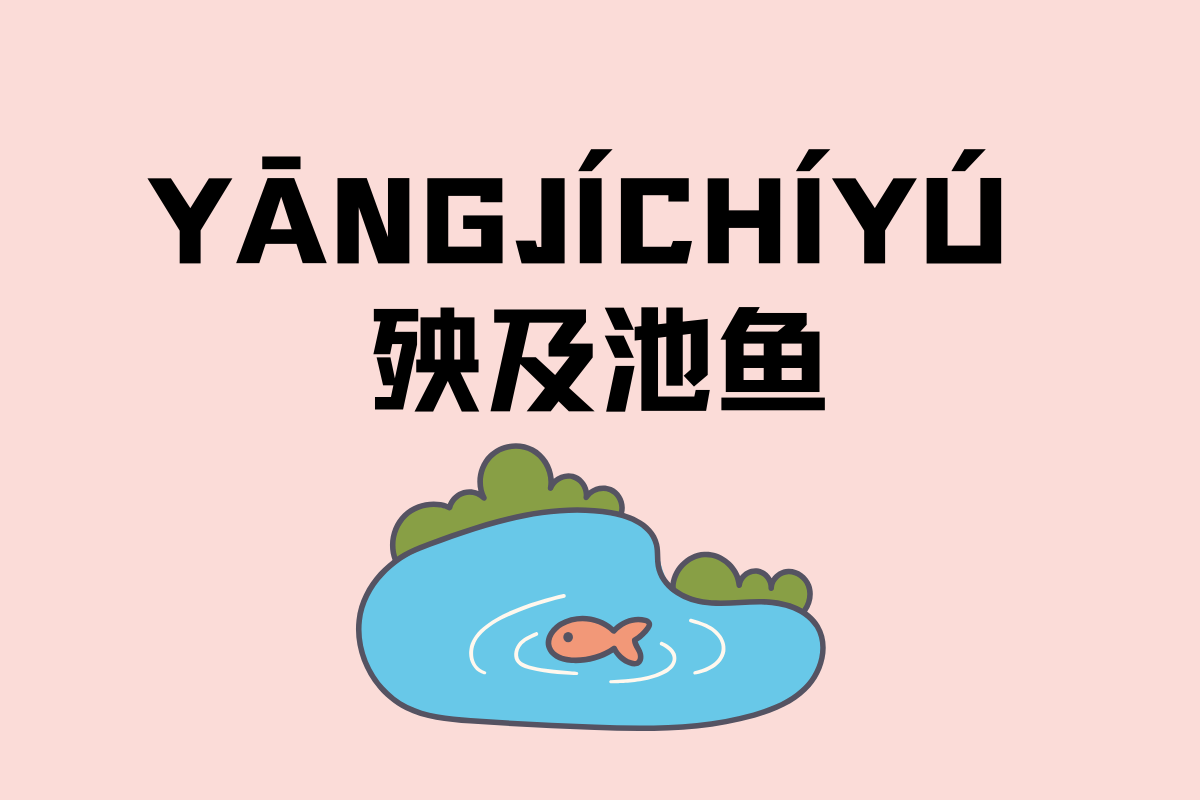Unintended Consequences-殃及池鱼 (yāng jí chí yú)
"殃及池鱼" (yāng jí chí yú) is a Chinese idiom that vividly illustrates the idea of unintended consequences and the impact of one's actions on others. In this article, we will delve into the meaning of this idiom, share an enlightening story, and explore its relevance in modern life.

The Story of "殃及池鱼" (yāng jí chí yú)
Once upon a time in a peaceful village, there was a tranquil pond teeming with colorful fish. The villagers took great care of this pond, ensuring its water was clean and its fish were healthy. It was a source of joy and sustenance for the entire community. One hot summer, a young boy thought it would be fun to catch some of the beautiful fish from the pond. He believed it was a 无害的 (wú hài de) harmless act. Little did he know the consequences of his actions. As he threw stones and attempted to catch the fish, the water became murky, and some fish were injured. The ripples of his actions disturbed the peaceful coexistence of the pond's ecosystem. The villagers were dismayed to find their cherished pond in such a state.
The idiom "殃及池鱼" (yāng jí chí yú) perfectly encapsulates this situation. The boy's thoughtless actions, intended to amuse himself, had a far-reaching impact on the entire community. The fish were harmed, the pond's ecosystem disrupted, and the tranquility of the village shattered. The lesson was clear: even seemingly small actions can have consequences that extend far beyond our intentions.
无害的 (wú hài de), adj, harmless
Examples:
- The ladybug is a harmless insect that poses no threat to humans.
瓢虫是一种无害的昆虫,对人类没有威胁。
Piáochóng shì yī zhǒng wúhài de kūnchóng, duì rénlèi méiyǒu wēixié. - This plant may look scary, but it's harmless and won't hurt you.
这种植物看起来可能吓人,但它是无害的,不会伤害你。
Zhè zhǒng zhíwù kàn qǐlái kěnéng xiàrén, dàn tā shì wúhài de, bù huì shānghài nǐ.
Inspiration
The story of "殃及池鱼" reminds us to consider the potential repercussions of our actions. It urges us to act with care and responsibility, recognizing that even minor decisions can create ripple effects, either positive or negative.
Meaning of the Idiom
"殃及池鱼" translates to "harming the fish in the pond," but its broader meaning is causing harm to 无辜的 (wú gū de) innocent bystanders while pursuing one's own interests.
无辜的 (wú gū de), adj, innocent
Examples:
- She is an innocent child who believes in the goodness of people.
她是一个相信人性善良的无辜孩子。
Tā shì yīgè xiāngxìn rénxìng shànliáng de wúgū háizi. - The innocent bystander had nothing to do with the accident.
无辜的旁观者与事故无关。
Wúgū de pángguānzhě yǔ shìgù wúguān.
Modern Application
In contemporary life, this idiom encourages us to consider the wider impact of our choices. It can apply to issues like environmental conservation, where small actions, such as reducing plastic use, can benefit not only individuals but also the planet and future generations.
Key Sentences:
- His careless littering "harm the innocent," harming the environment.
他随意乱丢垃圾,"殃及池鱼",损害了环境。
Tā suíyì luàndiū lèsè, "yāngjíchíyú," sǔnhài le huánjìng. - Reckless spending "harm the innocent," causing financial problems for the family.
鲁莽的开销"殃及池鱼",给家庭带来财务问题。
Lǔmǎng de kāixiāo "yāngjíchíyú," gěi jiātíng dàilái cáiwù wèntí. - The company's unethical practices "harm the innocent," damaging its reputation.
公司的不道德做法"殃及池鱼",损害了其声誉。
Gōngsī de bùdàodé zuòfǎ "yāngjíchíyú," sǔnhài le qí shēngyù.